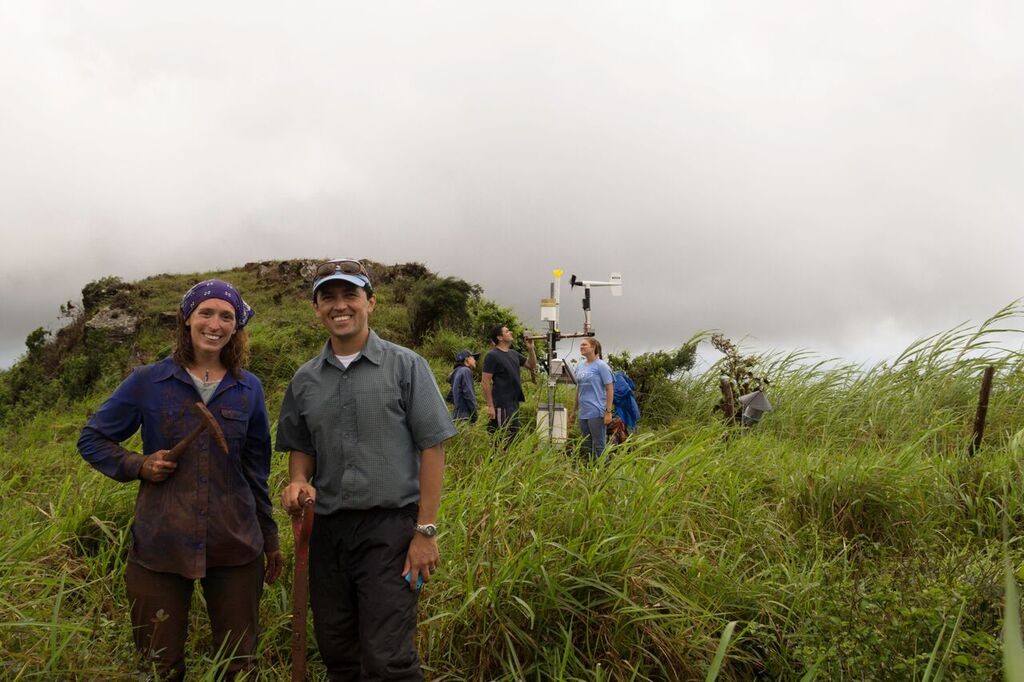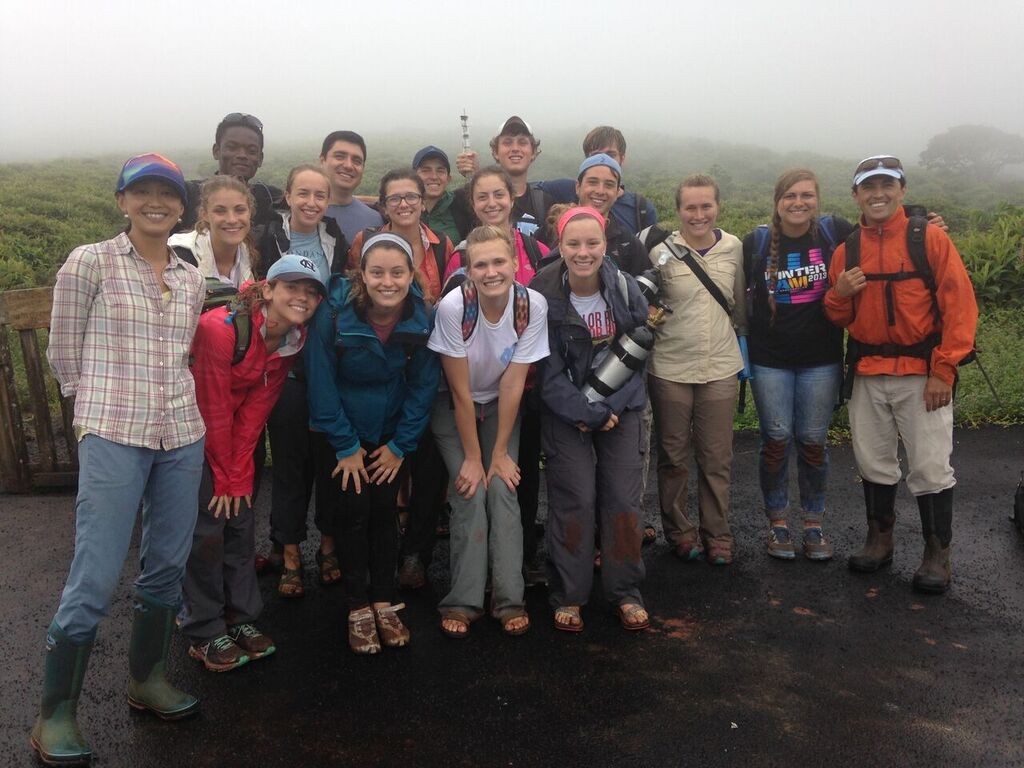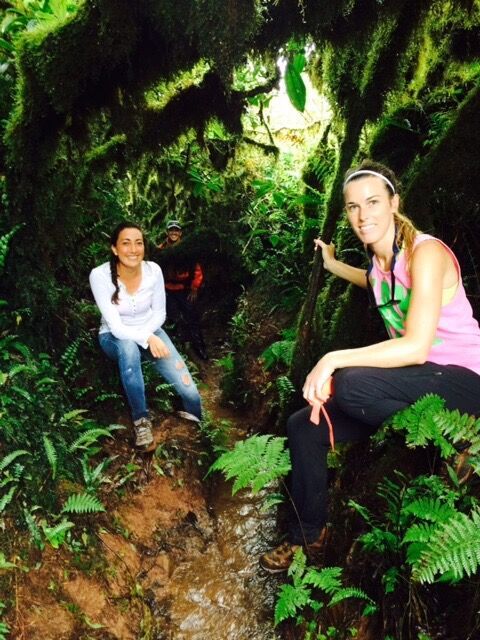The thin veneer around the Earth’s crust is responsible for supporting life and has been described as the Critical Zone (CZ). Volcanic islands are among the few places where the CZ develops on uniform bedrock, while exhibiting a distinct, sharp microclimate zonation imposed by altitude, varying precipitation, topography, vegetation, and age of the bedrock. Furthermore, some volcanic islands, like the Galapagos Islands, have a very short, yet pronounced, history of anthropogenic influence, making them an ideal laboratory to study the coupling between humans and CZ development.
Diego Riveros-Iregui and his research group seek to understand the interactions between hydrologic dynamics, climate, CZ development, land cover, and water quantity and quality in the Galapagos Islands. They monitor weather variables and collect rainfall, fog, soil and plant samples for laboratory analysis. In collaboration with the University of San Francisco-Quito, their project will provide a robust dataset with implications for surface- and groundwater quality and resource sustainability in the iconic Galapagos Islands undergoing severe anthropogenic pressures. Riveros-Iregui also teaches GEOG390, “Introduction to the Hydrology of Tropical Islands,” in which students focus on the hydrologic cycle and the interactions and feedbacks between hydrological and ecological processes, with a special emphasis on sustainability of island environments where freshwater inputs are limited. The course offers students an opportunity design a research project, including the conception of scientific questions, objectives, and hypotheses, and ‘hands-on’ experiments intended to answer questions regarding sustainability of water resources of island environments and more generally across many environments on the planet.

In 2015, Professor Riveros-Iregui and his research group began monitoring weather variables and collecting soil and plant material across different microclimatic zones on San Cristobal Island, Galapagos. This work is conducted in collaboration with UNC’s Galapagos Science Center and sponsored by the National Science Foundation Graduate Research Fellowship Program, the Geological Society of America, National Geographic Society, and the Critical Zone Observatory-Science Across Virtual Institutes (CZO-SAVI) network.

Fifteen UNC undergraduate students traveled to Galapagos to take a three-week course on the “Introduction to the Hydrology of Tropical Islands”. This course will be taught for the second time in June, 2016.

Ph.D. student and NSF Graduate Fellow Sarah Schmitt and University of San Francisco-Quito’s undergraduate Karolina Chamorro while collecting fog drip samples in the Galapagos Islands.

